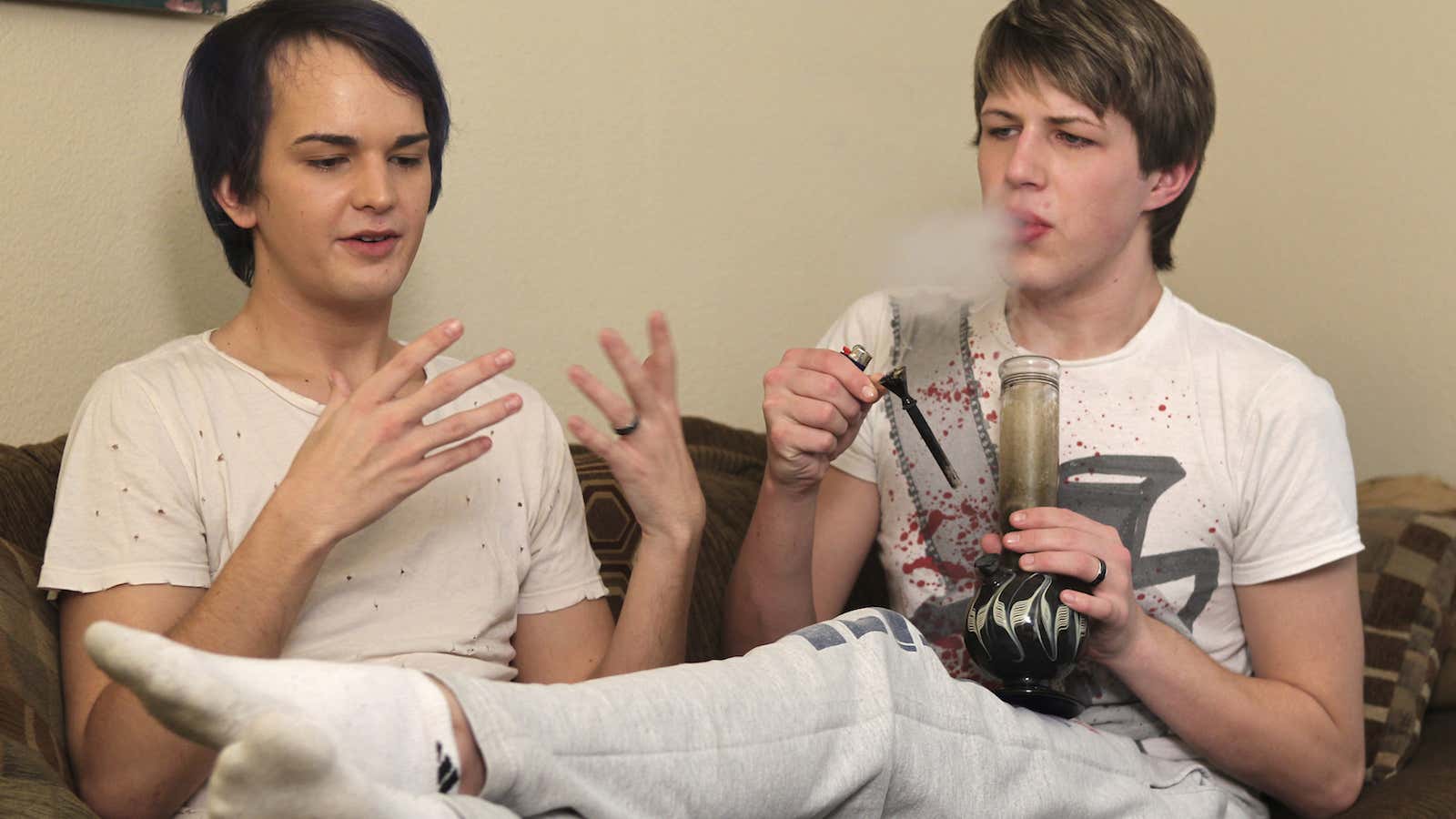In Washington, DC, the high was short-lived.
Just five days after pot became legal in the US capital, city lawmakers voted for strict limits on marijuana use, outlawing smoking in all public spaces, including inside private clubs, bars, hotels, and restaurants.
Weed aficionados who had hoped to mellow out with fellow tokers in Spanish-style “cannabis clubs” or ballrooms rented out for vaporization parties will now have to get their legal hit behind the closed doors of their own homes. (As a concession, some DC lawmakers have said they will push to clarify that smoking is also allowed in the traditional teenage havens of ‘‘greenhouses and garages.’’)
And the hoped-for marijuana “green rush” business bonanza of pot-themed events and clubs may be dead on arrival, although entrepreneurs can still open hemp stores and sell pot accessories.
Pro-pot activists say the new rules could force poorer marijuana smokers back onto the capital’s streets, where they could run afoul of the laws, going against the spirit of the measure aimed in part at ending striking racial disparities in marijuana arrests in DC—blacks are eight times more likely to face arrest than whites, despite similar usage habits.
The DC Cannabis Campaign chairman, Adam Eidinger, has called for a protest march and “smoke-in” on the numerically auspicious date of April 20 (4/20).
Without public venues, Eidinger tells Quartz, frustrated pot smokers will likely transform their homes into ‘‘speakeasies and after-hours joints.’’ He calls the policy “ridiculous,” pointing out, ‘‘We allow people to drink wine and hard liquor at the Kennedy Center every night and they get into cars and go home, but now we say you cannot smoke marijuana anywhere except at home?’’
Penalties for violating the new city rules are so stiff that there are unlikely to be many conscientious objectors. Mayor Muriel E. Bowser has promised to close down businesses if marijuana is consumed in their buildings and facilities.
DC residents who voted overwhelmingly in November for pot legalization only to see their ability to partake of the stuff severely restricted are not alone, though the city’s rules seem to be among the strictest.
Last month, Alaska became the third US state after Colorado and Washington State to permit recreational marijuana use. Legislators there have prohibited pot-smoking in ‘‘public spaces,’’ (streets, parks, schools) and threaten to include clubs and hotels.
And Alaskan towns including Wasilla (famous as Republican icon Sarah Palin’s hometown), brought in pre-emptive anti-pot rules forbidding, among other things, the sale of home-made pot brownies.
In Seattle, smoking pot in public could earn you a $27 fine, like public consumption of alcohol, and marijuana businesses cannot set up close to schools, playgrounds, parks, and the like.
On the other hand, Eidinger praised what he calls the ‘‘Mecca of marijuana legalization”—Colorado, where pot can be smoked in private pot clubs and the sale of recreational and medical marijuana has been allowed since January 2014. Marijuana is doing a brisk business there: In just under a year, the state saw the sale of $600 million worth of pot, and raked in $68 million in tax revenues.
In Europe, the laws in some cities are relatively relaxed. Barcelona has hugely popular cannabis clubs. And disappointed DC-dwelling potheads can always visit Amsterdam, of course, with its almost four-decade-old pot “coffeeshops.”
Now all eyes in the marijuana world are turning to Oregon, where measures permitting pot become law in July. Will smokers there also be forced indoors?
